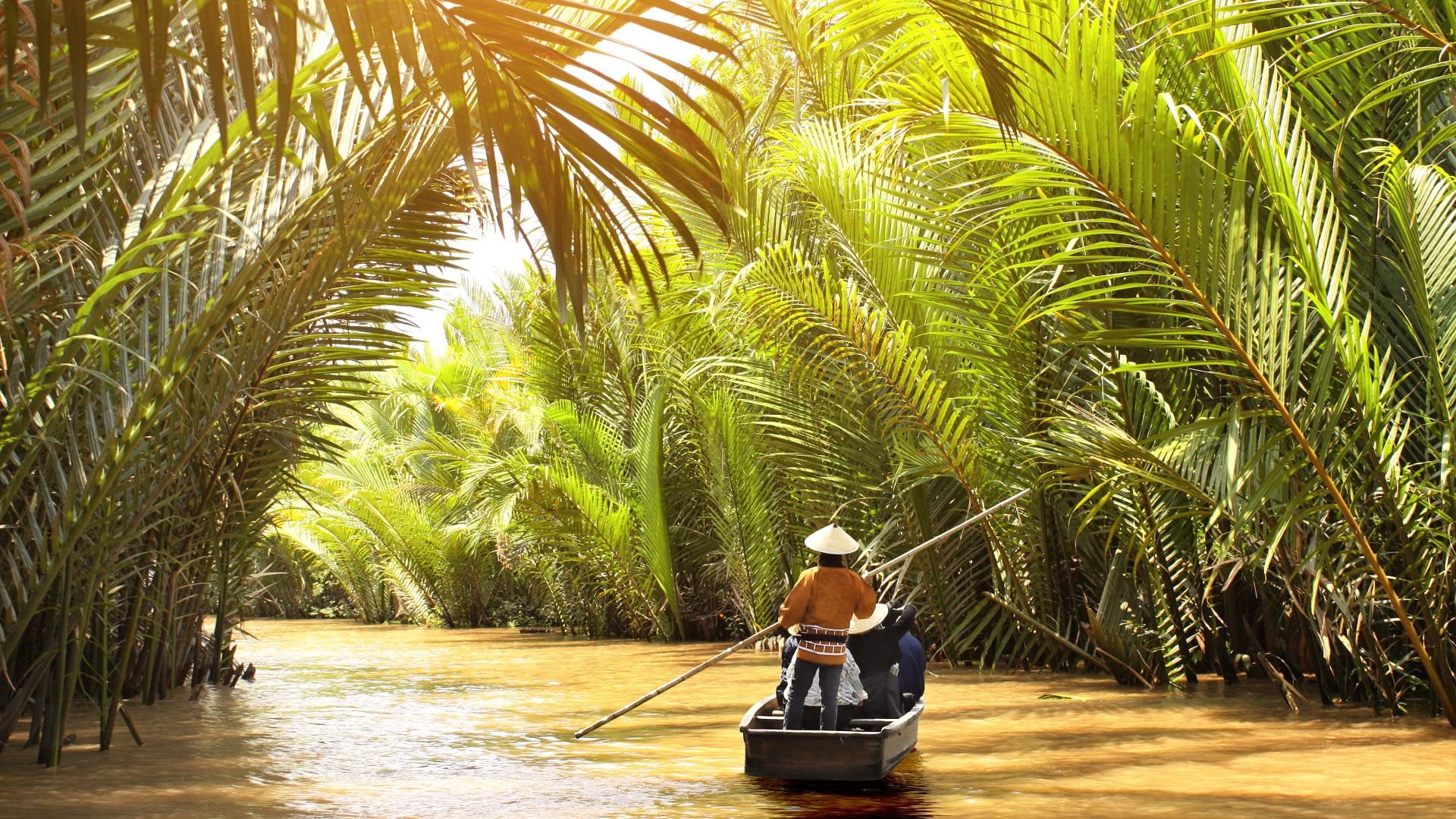Driving resilience for Vietnam’s Mekong Delta

Project facts
- ClientMinistry of Planning and Investment
- LocationVietnam, Mekong Delta provinces
- Date2019-2022
- ChallengeAddress the Mekong Delta's vulnerability to climate change impacts, including rising sea levels, seasonal flooding, and water shortages, while promoting sustainable development and socio-economic growth.
- SolutionDeliver an integrated regional plan, based on "building with nature" principles, to protect and improve livelihoods, promote balanced regional development, and enhance climate resilience within the Mekong Delta.
The challenge: addressing the Mekong Delta's vulnerability to climate change
The Mekong Delta’s location is highly vulnerable to the impacts of climate change, experiencing rising sea levels, flooding during the wet season, and water shortages during the dry season. Critically, land subsidence due to groundwater abstraction threatens to impact the region more significantly, with impact of subsidence amounting to several centimetres each year, compared to millimetres in sea level change.
With the delta area accounting for 12% of Vietnam’s natural landmass and 19% of the country’s population, the region faces significant challenges in building a resilient Mekong Delta and helping Vietnam make long-term, integrated, and adaptive climate-smart choices.
The overall purpose behind the plan is to take urgent action to manage the risks including climate change and support socio-economic development in an environmentally sustainable manner. A key aspect of the integrated plan is water: delivering water management, water resource management, clean drinking water, water for agriculture and aquaculture, and sanitation for all.
The solution: an integrated regional plan to enhance climate resilience within the Mekong Delta
Between 2019 and September 2022, Royal HaskoningDHV contributed to the first integrated regional plan for the Mekong Delta in Vietnam. Funded by the World Bank, the plan is supported by a strategic partnership between Vietnam and The Netherlands that’s based on shared vulnerable delta challenges. The plan covers development and spatial planning across different disciplines in the Mekong Delta to 2030, with a further view towards 2050.
The plan is designed to help Vietnam and the Mekong Delta region make smart climate resilience investment choices – a critical capability for a developing country. It’s the first plan to be prepared under the Law on Planning (LOP) in addition it was based on a government resolution (resolution 120) that promotes the sustainable and climate-resilient development of the Mekong Delta. It includes a mechanism to improve sectoral and provincial planning coordination at the regional level.
Based on our “building with nature” principles, the integrated regional plan is designed to both manage challenges and create value. It aims to protect people, improve livelihoods, promote more balanced regional development, improve the environment, and strengthen climate resilience within the Mekong Delta.
The four integrated elements of this strategy are:
- Agriculture: promote and support the production of higher-value, quality crops based on land and water suitability by relaxing land use restrictions, providing more support to farmers, and promoting improved farming practices.
- Agro-industrial hubs: collect and consolidate agriculture and aquaculture products locally on a sub-regional basis. And to add value through developing processing hubs located in provincial centres alongside other services and industries.
- Transportation: execute the phased improvement of roads, inland water transport (IWT), and ports, as well as regional logistics to reduce the overall cost of transport and make national and international exports from the region more feasible and competitive.
- Water management (agro-ecological zoning): retain some freshwater areas that can still be irrigated in the dry season and gradually change to an intermittent freshwater - brackish agro-ecology zone for water shortage areas. As part of the long term vision to 2050, there will be three zones: freshwater, intermittent freshwater, and saline - brackish.
We are proud to bring our water resilience expertise, combined with the latest digital thinking and tooling, to help create an achievable long-term vision for economic success and resilience for this important part of Vietnam.
The result: transforming the Mekong Delta's socio-economic landscape
An economic hub in need of careful environmental management
The Mekong Delta is a vital import and export hub for the country’s agricultural industry and essential to Vietnam’s economy. The area is highly fertile and is the largest regional producer and exporter of rice, fruit, fish, and aquaculture products. However, its GDP per capita is lower than the national average, and infrastructure development has added to the pressure on natural resources.
Royal HaskoningDHV has worked closely with Vietnam’s Ministry of Planning and Investment (MPI). Together with the MPI, other ministries and stakeholders – such as local provinces, populations and businesses – were involved in preparing the integrated regional plan. The work forms part of the wider concept of learning to live with and adapt to climate change, rather than fighting it.
Digital thinking and tooling for better decision making
Decision making that’s supported by digital tools is a critical component of this future-focused plan. That’s why we developed a “digital decision support toolkit” to promote and help an evidence-based planning approach for the future. The toolkit is an information portal featuring transparent, visual data to help stakeholders make better decisions. It includes a sophisticated database and analytical tools, such as hydro-hydraulic modelling software.
Scaling the plan today to meet Vietnam’s needs tomorrow
Looking to the future, Royal HaskoningDHV is now working with the Vietnamese Government to develop and implement several provincial plans within the regional planning framework. We’re also conducting a land suitability study for the World Bank to validate that the provincial project proposals fit within the scope of the regional plan, enabling the government to secure funding.
Want to know moreor got a question?
Contact our Climate Resilience experts!

